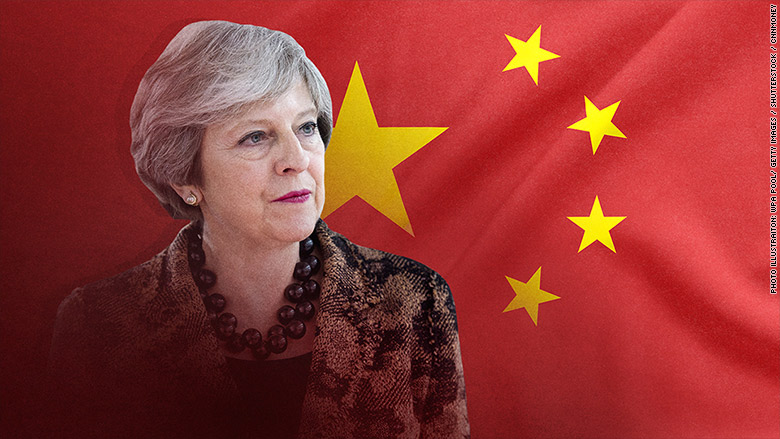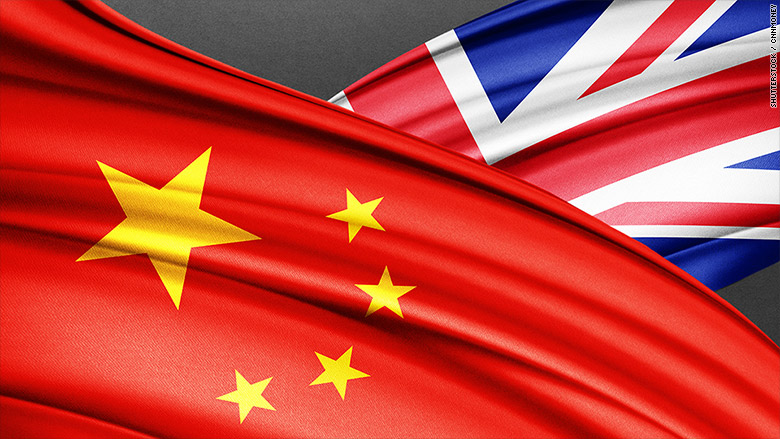
Prime Minister Theresa May is going to China, and she's bringing the British business community with her.
The visit, which kicks off in earnest on Wednesday, is designed to boost ties with the world's second largest economy ahead of Britain's departure from the European Union.
"There are huge trade opportunities in China that we want to help British businesses take advantage of," May said in a written statement ahead of the trip. "My visit will intensify the 'Golden Era' in U.K.-China relations."
There's plenty of work to be done.
Britain, the world's sixth largest economy, sends just 3% of its exports of goods and services to China. Meanwhile, just 7% of its imports are from China.
The total annual value of U.K.-China trade is about $84 billion, much less than the $211 billion in trade between Germany and China.
Related: See how U.K. trade stacks up
May, who will be joined by 50 representatives from businesses and trade groups, leads a government that hopes to strike new trade deals following its planned departure from the EU.
Analysts say there are ample opportunities for more trade with China. But a full, formalized trade deal could take five to 10 years to sign after Brexit.
"A post-Brexit China-U.K. trade deal could accelerate trade growth and benefit both economies -- but a deal would unlikely to be struck before 2025," said Ian Mitchell, a senior policy fellow at the Center for Global Development in Europe.

Britain's main exports to China are cars, petroleum products and tourism services, while it mostly imports Chinese manufactured goods, telecommunications equipment, clothing and electronics.
Experts say these imports have put pressure on domestic U.K. industries.
"Rising import competition from China is likely to have hastened the decline of U.K. manufacturing, particularly in those areas of the U.K. that specialized in the production of the same type of goods that we import from China," said researchers at the National Institute of Economic and Social Research.
Related: Chinese company buys former U.K. prime minister's local pub
In order to even out the relationship, experts hope May will focus on improving market access for Britain's vast professional and financial services industry. Language barriers and regulatory differences mean this is a largely undeveloped area.
Jon Geldart, a China expert at the tax and advisory services firm Grant Thornton International, said that May should also promote British design, technology, high-tech engineering, environmental services and craft beer.
"I hope we'll be able to attract further investment and showcase what Britain is good at," he said.

But China's interest in Britain may have waned since the Brexit referendum in June 2016.
"China was interested in the U.K. as a sympathetic voice inside the EU. Brexit means the U.K. counts for far less," said Peter Holmes, a trade expert at the University of Sussex. The "Chinese [are] unlikely to brush May off, but she can't expect much."


